Clara Bow Biography
Born July 29, 1905 in Prospect Heights, Brooklyn, New York City, New York, USA
Died September 27, 1965 in West Los Angeles, California, USA (heart attack)
Birth Name Clara Gordon Bow
Nickname The "It" Girl
Height 5' 3½" (1.61 m)
Clara Gordon Bow, destined to become "The It Girl", was born on July 29, 1905 in Brooklyn, New York, and was raised in poverty and violence.
Her often absentee and brutish father could not or did not provide and her schizophrenic mother tried to slit Clara's throat when the girl spoke of becoming an actress.
Clara Bow won a photo beauty contest which launched her movie career that would eventually number 58 films, from 1922 to 1933.
The movie "It" (1927) defined her career. The film starred Clara as a shop girl who was asked out by the store's owner. As you watch the silent film you can see the excitement as she prepared for her date with the boss, her friend trying hard to assist her.
She used a pair of scissors to modify her dress to try to look "sexier."
The movie did much to change society's mores as there were only a few years between World War I and Clara Bow, but this movie went a long way in how society looked at itself.
Clara was flaming youth in rebellion. I
In the film she presented a worldly wisdom that somehow sex meant having a good time.
But the movie shouldn't mislead the viewer, because when her boss tries to kiss her goodnight, she slaps him. At the height of her popularity she received over 45,000 fan letters a month. Also, she was probably the most overworked and underpaid star in the industry.
With the coming of sound, her popularity waned.
Clara was also involved in several court battles ranging from unpaid taxes to being in divorce court for "stealing" women's husbands. After the court trials, she made a couple of attempts to get back in the public eye. One was Call Her Savage (1932) in 1932. It was somewhat of a failure at the box office and her last was in 1933 in a film called Hoopla (1933).
She then married cowboy star Rex Bell at 26 and retired from the film world at 28. She doted on her two sons and did everything to please them. Haunted by a weight problem and a mental imbalance, she never re-entered show business.
She was confined to sanitariums from time to time and prohibited access to her beloved sons. She died of a heart attack in West Los Angeles, on September 26, 1965 at age 60.
Today she is finding a renaissance among movie buffs, who are recently discovering the virtues of silent film. The actress who wanted so much to be like the wonderful young lady in It (1927) has the legacy of her films to confirm that she was a wonderful lady and America's first sex symbol.
- IMDb Mini Biography By: Denny Jackson
Clara Gordon Bow was the sole surviving child of three; two girls born before her had died, one after two hours and the other after two days. She was brought up in poverty in Bay Ridge, Brooklyn (New York City). Her father, Robert Bow, who hailed from a large and once well-off family of Scottish and English descent, was unreliable and often absent. Her schizophrenic mother, the former Sarah Gordon, once tried to Clara after the latter won a photo beauty contest and declared her ambition to become an actress. Clara Bow would go on to appear in 56 feature films, with only a small number of talkies among them. Best-known as the uninhibited flapper type. Bow reached the top as the "It Girl" in 1927.
With the advent of sound and the Depression with its financial repercussions on disposable income, Bow's popularity faded. Adding to her problems were gambling debts, unpaid taxes and several sensational public court battles involving alienation of affections by certain spouses of men with whom Bow had reportedly had affairs as well as Bow's lawsuit against her secretary for embezzlement. Bow wed cowboy star Rex Bell at age 26 and retired two years later, in 1933. Plagued by personal crises, mental instability and weight issues, she never made another film. She died in 1965, aged 60, following a heart attack.
- IMDb Mini Biography By: Herman Seifer/Robert Sieger
Clara Gordon Bow, the future "It Girl", was born in a run-down tenement in old Brooklyn, to a schizophrenic mother (Sarah Gordon Bow) and a chronically destitute, physically abusive father (Robert Bow).
As a child, she was a tomboy and played games in the streets with the boys; since her clothes were so ragged and dirty other girl children wouldn't play with her.
Her best friend Johnny burned to death in her arms when she was 10 years old after he got too close to a fire. Years later, she could make herself cry at will on a movie set by listening to the lullaby "Rock-A-Bye Baby."
She claimed it reminded her of her small friend. She also told reporters simple, brutal, honest stories about her horrific childhood, which was a big no-no in her day.
Mental illness was considered shameful.
She entered "The Fame and Fortune Contest" as a teenager. Girls from all over the country competed, and the 1st Prize was a part in a movie. Bow showed up in ragged clothes and the other girls smirked at her. The contest judges paid no attention until she did her screen test - and then they unanimously chose her over all the other girls. Bow lit up the screen and got the part but it was later cut from the movie. During this time her mother tried to kill her and was institutionalized where she remained until her death.
Bow was taken to Hollywood by B.P. Schulberg, who used her sexually and financially. He worked her like a horse and paid her very little compared to other stars of the day. Even so, the talented actress became a superstar, and the first ever Hollywood sex symbol. She could flirt with the camera just by looking into it with her big brown eyes and mischievous bow-tie grin. She exuded sex appeal from every pore in her little body and was not afraid to flaunt it. She personified "flaming youth in rebellion". Her characters were always working class gals; manicurists, showgirls and the like. Her movies reportedly emancipated many young people from the restrictive morals of their parents. Bow's characters were unashamed about being attracted to men and went after them with gusto. Her shop girl in It (1927) sees the boss's son one day, and says "Oh Santa, gimme him!" She knows exactly what to do to get him interested and then keeps him on his toes. Her characters cut their dresses up to look sexier, cut off their hair, drank and smoked in public, and danced all night long. At the height of her career, she received 45,000 fan letters a week, a record that has never been equaled. She was the idol of working girls and the dream of working class guys everywhere.
Although the public adored Bow, Hollywood elite shunned her. Many of Hollywood's big names of the 1920s had also come from poor backgrounds but after they made it big they tended to develop upper class values and personas. It was later discovered by a biographer that Clara suffered from mental illness, although not as severely as had her mother. She had very public affairs (her euphemism was "engagements") with a score of leading men and directors, including Victor Fleming, Gary Cooper, and Gilbert Roland. This behavior horrified her peers, and eventually she was driven out of Hollywood. Nasty rumors about her sexuality floated around the movie colony, including one about her taking on the entire USC Football Team one night, which was finally disproved by a biographer, David Stenn.
The coming of sound was like an earthquake to Hollywood. It shook up everything. Her fans probably wouldn't have minded her blue collar Brooklyn accent, since most of them were working class gals themselves, but Bow got herself so worked up with mic fright she had breakdowns during her first talkies. Before she could recover from this, she ended up in court with her private life splashed all over the papers, which didn't help matters one bit. Her secretary and best friend, Daisy de Voe, was caught embezzling from her. When Bow took de Voe to court, the secretary told the court about and the press reported uncensored details of Bow's sex life, much of which was exaggerated. Bow had another more serious breakdown and entered a sanatorium. Soon after, she retired and moved to Nevada with her new husband, cowboy actor Rex Bell. The couple had two sons. She died in 1965, aged 60, from heart disease.
- IMDb Mini Biography By:
[contact link]
Family (3)
Spouse Rex Bell (3 December 1931 - 4 July 1962) (his death) (2 children)
Children Rex Bell Jr.
Parents Robert Bow
Sarah Bow
Trivia (22)
Before she was known as "The It Girl", she was known as "The Brooklyn Bonfire".
Sons, by Rex Bell: Rex Bell Jr. (b. 1934) and George Robert (b. 1938).
She lived in a seven-room bungalow at 512 N. Bedford Dr. in Beverly Hills at one point. She also lived in a Spanish-style house on Hollywood Blvd. between 1925 and 1927, and her last home was on Aneta Street in Culver City. She reportedly preferred playing poker with her cook, maid, and chauffeur over attending her movie premieres. Some of the properties in question are shown in Hollywood Mouth 2 (2014), whose director, Jordan Mohr lived near the Culver City property as a child and recognized the name of the street while reading David Stenn's biography of the actress.
She worked at a hot dog stand on Coney Island as a teenager, run by a man named Nathan Handwerker, who later founded Nathan's Franks. However, contrary to legend, she was not discovered there.
Pictured on one of ten 29¢ US commemorative postage stamps celebrating stars of the silent screen, issued 27 April 1994. Designed by caricaturist Al Hirschfeld, this set of stamps also honored Rudolph Valentino, Charles Chaplin, Lon Chaney, John Gilbert, Zasu Pitts, Harold Lloyd, Theda Bara, Buster Keaton, and the Keystone Kops.
WAMPAS Baby Star of 1924.
Refused to write her memoirs on the grounds there were many things that might embarrass her two sons and their families. She felt all the money in the world would not compensate for the embarrassment.
After her death there were rumors that she had faked her death, and some had reported seeing her visiting her own grave, at Forest Lawn, Glendale (Freedom Mausoleum, Sanctuary of Heritage), where she is interred next to George Burns and Gracie Allen.
Kristin Hersh wrote a song about her for the band 50 Foot Wave entitled "Clara Bow." It appears on the band's debut album "Golden Ocean".
Was billed as "The Hottest Jazz Baby in Films" by independent producer B.P. Schulberg for The Plastic Age (1925).
Bow applied her red lipstick in the shape of a heart. Women who imitated this shape were said to be putting a "Clara Bow" on their mouths.
1928: She became the highest paid movie star, receiving $35,000 per week.
1949: After being diagnosed with schizophrenia, her regimen included shock treatments. Later in her life her husband sent her to one of the top mental institutions in the nation.
1994: She was honored with an image on a United States postage stamp designed by caricaturist Al Hirschfeld.
As soon as Bow started to make money, she brought her father to live with her in Hollywood. For the next few years, she funded numerous business ventures for him, including a restaurant and a dry cleaners, all of which failed. He soon became a drunken nuisance on her sets, where he would try to pick up young girls by telling them his daughter was Clara Bow.
Had a turbulent love affair with actor Bela Lugosi (who had yet to deliver his career-making legendary performance in Dracula (1931) on the big screen) in the late 1920s. Lugosi had a nude portrait of Bow hanging in the bedroom of his small Hollywood apartment for the rest of his life.
She had a rare singing role (sang "I'm True To The Navy") in Paramount on Parade (1930), a talkie and one of her last films.
Prince refers to her in his song "Condition of the Heart". The line goes, "There was a woman from the ghetto who made funny faces just like Clara Bow".
F. Scott Fitzgerald described Bow in 1927 at the peak of her fame: "Clara Bow is the quintessence of what the term 'flapper' signifies as a definite description. Pretty, impudent, superbly assured, as worldly wise, briefly clad, and 'hard-berled' as possible... Now, there are thousands more [flappers] patterning themselves after her".
For her first talking picture, Clara Bow had only 2 weeks to learn.
During the 1950s, she and actor Marlon Brando were pen pals. They corresponded regularly until her death in 1965.
She was considered for the role of Norma Desmond in "Sunset Boulevard" (1950).
Personal Quotes (12)
The more I see of men, the more I like dogs.
[on director Victor Fleming] Of all the men I've known, there was a man.
[when asked what "It" was, replying in her perfect Brooklyn accent] I ain't real sure.
We had individuality. We did as we pleased. We stayed up late. We dressed the way we wanted. I used to whiz down Sunset Boulevard in my open Kissel, with several red Chow dogs to match my hair. Today, they're sensible and end up with better health. But we had more fun.
When I decided to leave the screen, I told Ben Schulberg [producer B.P. Schulberg] I would not finish my contract or ever work again for anyone. He yelled and threatened to sue me and I said, "Go ahead, Ben, sue me. I've fought a thief and a blackmailer and, if after such heartaches I am forced to fight you and the studio, so be it".
People used to say that I had a feeling of closeness, a great warmth of loving everybody, that they could tell me their troubles.
[on the death of her grandfather when she was five] The first night, as he lay in his coffin in the dining room, I crept out of my bed and lay down on the floor beside him because I had the feeling that he might be lonely. My father found me there in the morning, almost frozen. I said, 'Hush, you mustn't wake grandfather. He's sleeping.'
[on her poverty-stricken childhood in Brooklyn] No one wanted me in the first place. Often I was lonesome, frightened and miserable. I never had a doll in my life. I never had any clothes, and lots of times didn't have anything to eat. We just lived, and that'a about all. Girls shunned me because I was so poorly dressed - the worst looking kid on the street. I decided that girls weren't any good, and being lonely and needing child friends, cast my lot with the neighborhood boys. I became a regular tomboy - played baseball, football and learned to box.
[asked for her thoughts on Marilyn Monroe after Monroe's death] A sex symbol is a heavy load to carry when one is tired, hurt and bewildered.
Wally Reid was my first sweetheart, though I never saw him except on the screen. He was Sir Galahad in all his glory. I worshiped Mary Pickford. How kind and gentle and loving she was. Maybe there were people like that in the world.
But I was a good runner, I could beat most of the boys and I could pitch. When they played baseball in the evening in the streets, I was always chosen first and I pitched. I don't think I had very good clothes, they were rougher and older than the other girls', and the girls used to say snippy things to me and shout "carrot-top" and things like that. Outwardly, it seemed as though I were just a rough, strong little tomboy. But tragedy seemed to mark me early for its own. I had one little playmate, though, to whom I was devoted. He was a little boy who lived in the same house with me. I think his name was Johnny. He was several years younger than I was and I used to take him to school with me, and fight the boys if they bothered him. I could lick any boy my size. My right was quite famous. My right arm was developed from pitching so much. One day after school I was alone in our house upstairs when I heard a terrible noise downstairs. For a minute if curdled my blood, then I ran down wildly. Johnny had gone too near the fire and his clothes had caught and were burning and he was screaming with pain and fright. His mother was standing there, wringing her hands and screaming, too, like a crazy woman and not doing a thing. When I came tearing in Johnny screamed "Clara, Clara, help me." He ran over and jumped into my arms. I had just enough sense to know what to do. I laid him on the floor and rolled him up in the carpet and tried the best I could to put the fire out. The poor little fellow struggled and screamed all the time. I shouted for his mother to get a doctor and she ran out. I stayed alone with Johnny, holding him in my arms rolled up in the carpet and trying to soothe him and quiet him. I was crying all the time myself and pretty nearly crazy, too. I seemed to feel the fire on my own flesh, and every time he cried out it seemed to me I couldn't bear it any more. The doctor came. He couldn't do anything. The little fellow died in my arms. He was just - just all burned up, that's all. I tried to pray then, begging God not to let him suffer like that. The last thing he said was "Clara- Clara-." When I knew he was dead I went upstairs and cried for hours. I have never cried but once like that since. That was when my mother died. It seemed to me that life was just too terrible to be borne. When my mother came in I was asleep. I had cried myself into complete exhaustion, and I was ill for several weeks. The shock had been too much. For months I used to wake up and think I heard that little fellow calling "Clara-Clara-help me." Things like that are terrible for a little child to go through - I was only about eight or nine, I guess.
I live in my little bungalow in Beverly Hills with my father. I work very, very hard. I like young people and gaiety, and have a lot of both around me whenever I have time. I like to swim and ride and play tennis. I have a few close friends, but not many acquaintances. I don't have time. I am happy - as happy as anyone can be who believes that life isn't quite to be trusted. I give everything I can to my pictures and the rest to being young and trying to make my father happy, and filling up the gaps in my education. I don't think I'm very different from any other girl - except that I work harder and have suffered more. And I have red hair. All in all, I guess I'm just Clara Bow. And Clara Bow is just what life made her. That's what I've tried to tell you in this story. I'm terribly grateful and still a little incredulous of my success. It seems like a dream. But - I'm willing to work just as hard as ever to go on having it. Beyond that, I haven't yet evolved any plans or desires. After all, I'm still only twenty-two. That isn't so very old, is it?
Salary (5)
Beyond the Rainbow (1922) $50 /week
Down to the Sea in Ships (1922) $35 /week
Two Can Play (1926) $1,750 /week
The Wild Party (1929) $5,000 /week
Call Her Savage (1932) $125,000
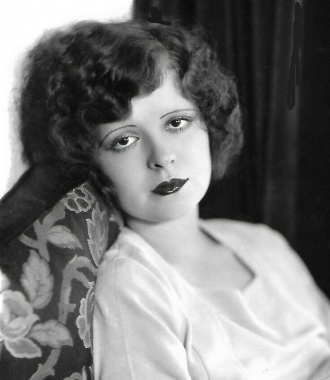
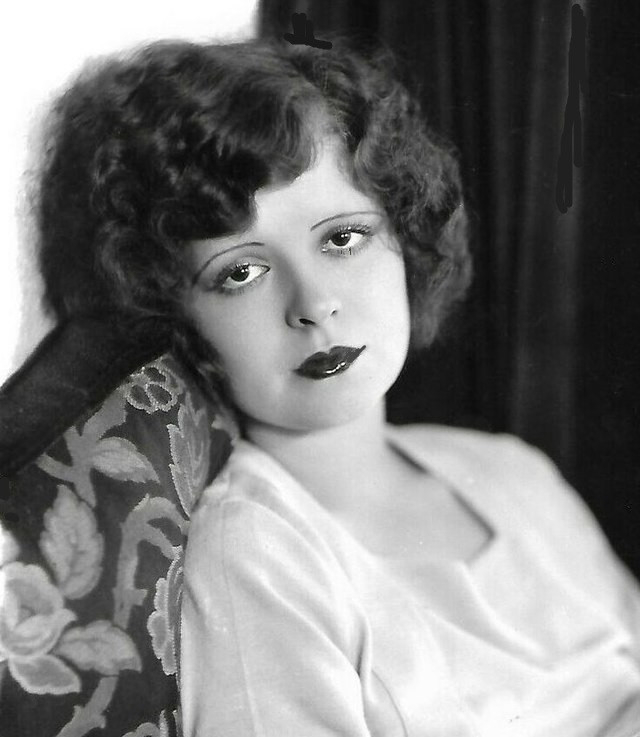
 Amanda S. Stevenson
Amanda S. Stevenson 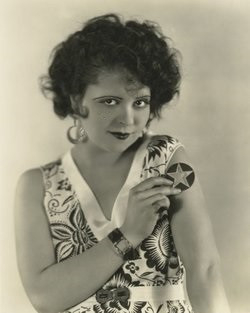
 Amanda S. Stevenson
Amanda S. Stevenson 
 Amanda S. Stevenson
Amanda S. Stevenson 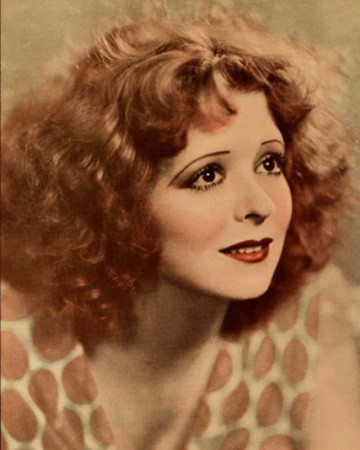
 Amanda S. Stevenson
Amanda S. Stevenson 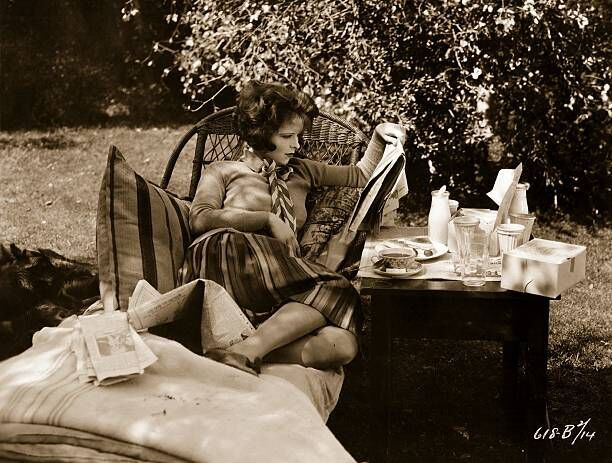
 Amanda S. Stevenson
Amanda S. Stevenson 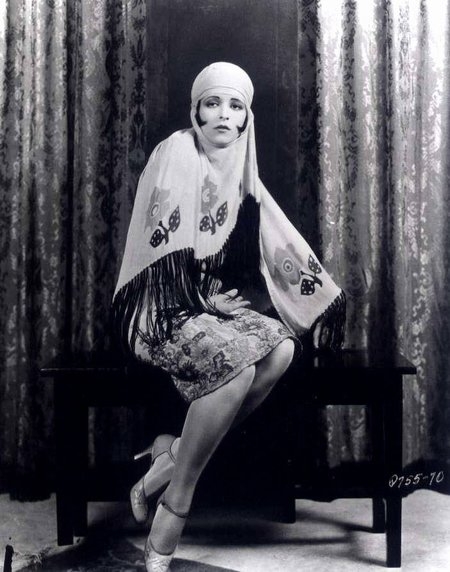
 Kathy Pinna
Kathy Pinna 
